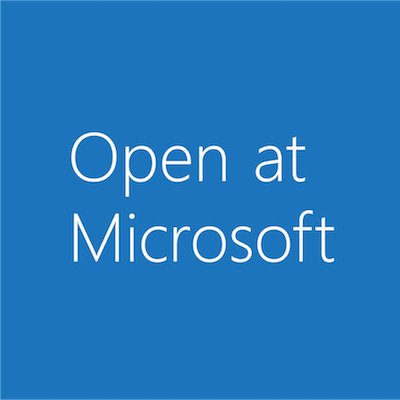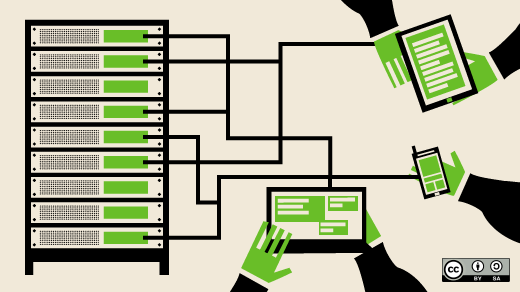Originally posted by bash2bash
View Post
Announcement
Collapse
No announcement yet.
The New Microsoft exFAT File-System Driver Is Set To Land With Linux 5.7
Collapse
X
-
Though predominantly because the long-established 'U'DF was, from the go, implemented in a deliberately crippled way by both major commercial OSes to render it effectively useless for any cross-platform usage outside optical data disks.
-
since when did WIndows erase Linux during install? Unless the installing person does that blindlyOriginally posted by M@GOid View Post
Wasn't this the same Microsoft that was suing all Android phone manufacturers for patent infringement? You might had forgotten that, but I do not.
And that is only the tip of the iceberg. I watched them crapping all over the Linux ecosystem over the past 20 years (remember SCO suing with MS money?). I'm not the type that received that shit in the face, and open my arms to receive them like a good old friend the next day.
BTW, they can start the "forgive and forget" steps by not erasing my Linux install (during Windows install) and putting a EXT4 driver on Windows for yesterday. Otherwise they are still the same bastards they always were, hiding behind a smiley face. "MS loves Linux" my ass.
Leave a comment:
-
Where in my text you saw I was praising Google? I only pointed what MS did. Your hate towards them made you blindly offend me without reason.Originally posted by techzilla View Post
Get off Google's nuts already, they run walled gardens, and they almost intentionally sabotaged the arm platform for general computing. When you put the most devices in the hands of consumers, you make sure you use a standardized boot specifacation and platform, so that everyone isn't locked into your crappy OS. When you hold everyone back like that, then you pulled some late 90's style MS behavoir, and thus must be opposed. MS gets a new chance again, they paid their dues a while ago for bad stewardship, if your standing with Google and Apple, you're working aginst the community.
And for MS "peace and love" stance, I repeat, they are not doing any effort on the OS compatibility front. Still with the same lock-in behavior as before and it is only getting worse, with that MS account to login on Win10.
- Likes 2
Leave a comment:
-
Originally posted by rogerx View PostI've already converted a secondary NTFS partition to UDF, due to block errors not being fixed by the GUI Windows 10 scan disk. (Not a fun thing to find-out when resizing the partition using GParted!) Only chkdisk /f would find & fix the block errors. Also noticed no scheduled chkdisk.exe was in place for checking the file systems automatically. Many have stated the UDF file system is your universal or swiss army knife file system of choice for a portability among many operating systems, due to it's universal open source nature.
I'm not a fan of any of those Windows' ext2/ext3/ext4 file system drivers.
Also, the File sysem comparison Wikipedia states, exFat is not resizable.
UDF file system seems to have none of the restrictions or problems the other proprietary file systems have.
UDF driver on Linux needs work.
Remember 2.60 UDF specification was released 2005 so 15 years latter still not all current operating systems support it. UDF should be a good choice but is purely let down by implementation.
- Likes 1
Leave a comment:
-
I've already converted a secondary NTFS partition to UDF, due to block errors not being fixed by the GUI Windows 10 scan disk. (Not a fun thing to find-out when resizing the partition using GParted!) Only chkdisk /f would find & fix the block errors. Also noticed no scheduled chkdisk.exe was in place for checking the file systems automatically. Many have stated the UDF file system is your universal or swiss army knife file system of choice for a portability among many operating systems, due to it's universal open source nature.
I'm not a fan of any of those Windows' ext2/ext3/ext4 file system drivers.
Also, the File sysem comparison Wikipedia states, exFat is not resizable.
UDF file system seems to have none of the restrictions or problems the other proprietary file systems have.
Leave a comment:
-
Get off Google's nuts already, they run walled gardens, and they almost intentionally sabotaged the arm platform for general computing. When you put the most devices in the hands of consumers, you make sure you use a standardized boot specifacation and platform, so that everyone isn't locked into your crappy OS. When you hold everyone back like that, then you pulled some late 90's style MS behavoir, and thus must be opposed. MS gets a new chance again, they paid their dues a while ago for bad stewardship, if your standing with Google and Apple, you're working aginst the community.Originally posted by M@GOid View Post
Wasn't this the same Microsoft that was suing all Android phone manufacturers for patent infringement? You might had forgotten that, but I do not.
And that is only the tip of the iceberg. I watched them crapping all over the Linux ecosystem over the past 20 years (remember SCO suing with MS money?). I'm not the type that received that shit in the face, and open my arms to receive them like a good old friend the next day.
BTW, they can start the "forgive and forget" steps by not erasing my Linux install (during Windows install) and putting a EXT4 driver on Windows for yesterday. Otherwise they are still the same bastards they always were, hiding behind a smiley face. "MS loves Linux" my ass.
Leave a comment:
-
Originally posted by Nille_kungen View PostIs it? What patents would that be?
The FAT patents has expired. We’re pleased to announce that Microsoft is supporting the addition of Microsoft’s exFAT technology to the Linux kernel.
We’re pleased to announce that Microsoft is supporting the addition of Microsoft’s exFAT technology to the Linux kernel.
Sorry to say Microsoft does not list the exfat particular patents. These are not the Fat Long file name patents. There are new features in exFAT that Microsoft has most likely patented.
 Linux System OIN provides for its community members to share their patents and applications with each other (i.e., cross-licenses) in support of Open Source innovation and patent non-aggression. In other words, OIN protects essential Open Source technologies by facilitating freedom to operate in a patent cross-licensing network. The coverage area or scope of the
Linux System OIN provides for its community members to share their patents and applications with each other (i.e., cross-licenses) in support of Open Source innovation and patent non-aggression. In other words, OIN protects essential Open Source technologies by facilitating freedom to operate in a patent cross-licensing network. The coverage area or scope of the
Please note patents being granted to OIN is not generic open source usage. So if you are implementing exfat support on BSD for example you are still legally screwed and still need to form agreement with Microsoft or risk end users coming targeted by Microsoft patent department.
- Likes 2
Leave a comment:
-
Sorry but doing that is not that recommend without understanding what you are doing. Just because you can do something does not mean you should.Originally posted by Aryma View Postthanks i'm new to linux and used Ext2Fsd to access ext4 partition but i went lazy solutions
The fact you said partition I guess you installed in a single partition for simplistic install of Linux in that case you should not be using Ext2FSD when it ext4.
http://www.ext2fsd.com/?p=236 They note that ext2fsd don't support all the journal operations.
 The majority of modern Linux distributions default to the ext4 filesystem, just as previous Linux distributions defaulted to ext3, ext2, and—if you go back far enough—ext.
The majority of modern Linux distributions default to the ext4 filesystem, just as previous Linux distributions defaulted to ext3, ext2, and—if you go back far enough—ext.
When you read here you will notice that default Linux kernel has 3 different modes for running the journal with ext3/4. The windows driver Ext2Fsd supportsnone of those modes so data not protected as good as it should be even less protected than the worst choose-able Linux kernel ext3/4 journal mode.
The current version of Ext2Fsd can stomp over selinux LSM permission information making system unstable. Please note this is not just as Ext2Fsd issue either. ntfs3g is also not only slow but if you use ntfs3g on a windows operating system install partition it can sometimes screw of permissions. Its a general thing don't mix operating systems accessing operating system partition unless you serous-ally have to fix an already broken operating system it brings trouble due to differences in the file system drivers normally by permission operating system expects to be X end up to be Y then system does something wrong. PS(I learnt this rule not with Linux but when I had windows 2000 and windows XP installed on the same system yes windows 2000 idea of correct file permissions could kill XP and XP idea of correct permissions could kill 2000. So this is a general rule of only one operating system should access the partition an operating system is installed in break if you want hell or are already in hell and it cannot really get worse.)
Yes it pain to set up a partition particularly for transferring data between windows/linux but this reduces risk of o my no I broke everything at worst in most cases you switch OS and your transfer partition does not work and you switch back and are able to read the data out this is better than OS does not work any more lets reinstall. The safest solution is setup a network attached storage device for transferring between windows and Linux this way only 1 OS is in fact writing the data to disc/ssd.
- Likes 2
Leave a comment:
-
Is it? What patents would that be?Originally posted by johannesburgel View PostAlso they never contributed the patents to OIN, so using this driver without a patent agreement is still problematic.
The FAT patents has expired.
Leave a comment:
-
Microsoft gets royalties from Android vendors based on patents Microsoft claims to hold, but it hasn't gone to court. Obviously that's not good behavior by a company, but in the case of ExFat, Microsoft is openly saying they want it in mainline (as I linked).Originally posted by M@GOid View PostWasn't this the same Microsoft that was suing all Android phone manufacturers for patent infringement? You might had forgotten that, but I do not.
I've never heard of a case where Microsoft publicly stated that something wasn't infringing on patents, and then turned around and threatened legal action.
I don't trust Microsoft blindly, and honestly you shouldn't put blind trust in any company. This isn't about Microsoft being a good friend, this is just about whether there is a legal problem with this filesystem driver.Originally posted by M@GOid View PostI watched them crapping all over the Linux ecosystem over the past 20 years (remember SCO suing with MS money?). I'm not the type that received that shit in the face, and open my arms to receive them like a good old friend the next day.
The fact is that Microsoft is both publicly saying they want exFat in the kernel, and have been working with the Linux foundation on this. If there were legal problems I highly doubt the upstream community would be ok with merging this, it's not as if this is being snuck into the kernel without people knowing about it.
- Likes 4
Leave a comment:


Leave a comment: